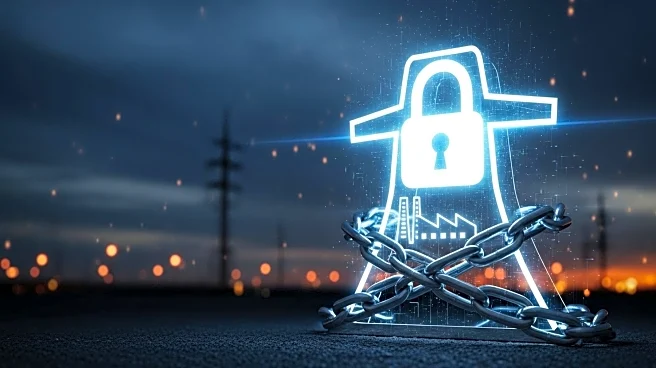What's Happening?
Ukraine has reported a significant Russian attack on its energy infrastructure, resulting in widespread power outages across several regions, including Kyiv. Ukrainian President Volodymyr Zelensky stated that the attack involved over 450 drones and more than 30 missiles targeting civilian and energy facilities. The strikes have left parts of Kyiv without power and affected thousands of households and businesses in regions such as Poltava and Zaporizhzhia. The attack is seen as part of Russia's strategy to deprive Ukrainians of essential services ahead of winter. Ukrainian officials are working to restore power and minimize the impact of the strikes.
Why It's Important?
The attack on Ukraine's energy infrastructure is significant as it highlights the ongoing conflict's impact on civilian life and essential services. By targeting energy facilities, Russia aims to weaken Ukraine's resilience and disrupt daily life, especially as winter approaches. This tactic could lead to increased humanitarian challenges, as power and heating become critical during colder months. The strikes also underscore the vulnerability of infrastructure in conflict zones and the broader geopolitical tensions between Russia and Ukraine, affecting regional stability and international relations.
What's Next?
Ukraine's government and energy sector are focused on repairing the damage and restoring services. Prime Minister Yulia Svyrydenko has indicated that repair crews are actively working to bring back power and water supplies. The ongoing conflict may lead to further attacks, prompting Ukraine to enhance its defenses and seek international support. The situation could also influence diplomatic efforts to resolve the conflict, as the humanitarian impact becomes more severe. Stakeholders, including international organizations, may increase aid and support to mitigate the effects on civilians.
Beyond the Headlines
The attack raises ethical and legal questions about targeting civilian infrastructure during conflict. It highlights the need for international norms and protections for essential services in war zones. The long-term implications could include shifts in energy security strategies and increased investment in infrastructure resilience. The situation may also affect cultural perceptions of the conflict, as civilians endure hardships and adapt to new realities.









